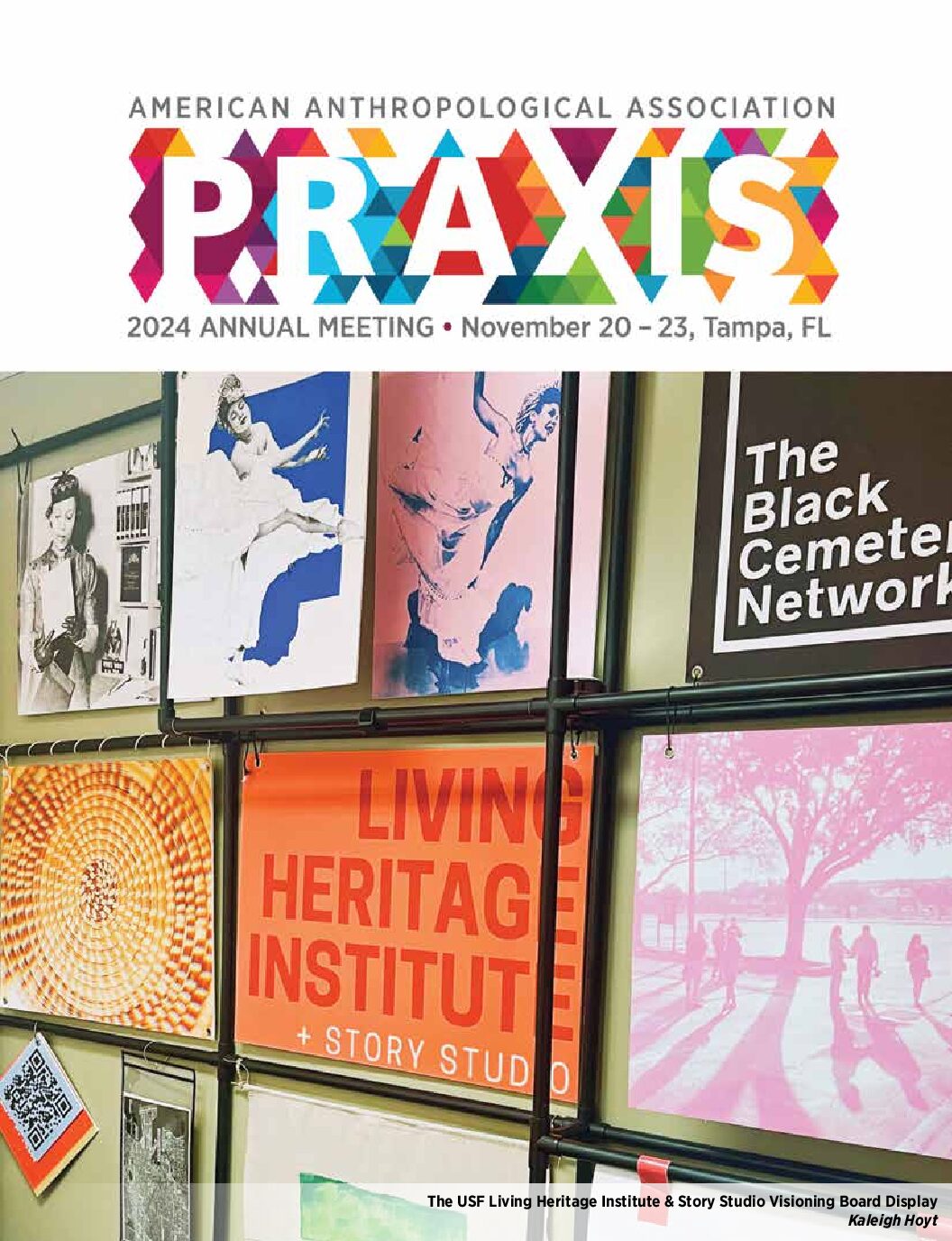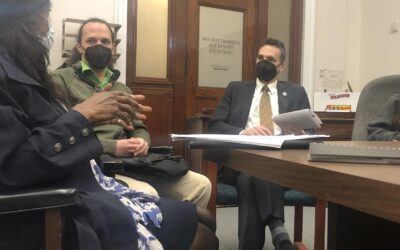Blue Children and All Shades of Responsibility
The Association for the Anthropology of Policy
Ema Hrešanová
January 8, 2018
Book Review
One Blue Child: Asthma, Responsibility, and the Politics of Global Health. Susanna Trnka. Stanford: Stanford University Press, 2017. ISBN: 9781503601130. 280pp.

Turning red is much “sexier” than turning blue in terms of health symptoms. Many physicians that Trnka interviewed for this book believe that cardiac issues attract more attention than respiratory conditions in current biomedical practice. Yet, Trnka’s rich and dense ethnography demonstrates that asthma, also a cultural and social phenomenon, is an important and provocative subject of inquiry.
One Blue Child is an encompassing analysis of breathlessness in countries as different as New Zealand and the Czech Republic. The book offers an in-depth exploration of the broader and more fundamental issues of responsibility, personhood, subjectivity, and inter-relationality that revolve around care and healing in the historical context of two century global capitalism.
Trnka conducted “broadly focused, deeply ethnographic research” combined with cross-cultural comparison that “follows the policy” (with a reference to Shore and Wright 2011). This approach allows her to grasp hidden cultural assumptions around asthma care. For instance, while Czechs generally believe that their asthma rates are one of the highest in the world, most New Zealanders do not know that it is actually their rates of asthma that are internationally the second highest right after the UK.
Trnka’s methodological approach culminates in rich findings of broad explanatory power that extend from phenomenological analysis of the asthma experience, through patterns of social relations in families and healthcare “total institutions,” to broader structural and political issues related to ethnicity, gender, and poverty in the two societies. She investigates both the “policy” in terms of written undertakings and “policies” in a sense of “culturally acknowledged ‘guides to action’” (with a reference to Martin 1997, 2009). Inspired by the Science, Technology, and Society (STS) “assemblage approach,” she understands such policies as nodes of larger shifting networks and assemblages of actors, rationalities, and technologies that “shape subjectivity, health and medicine… across distinct political and cultural milieus.” These include places as diverse as steelworks in an industrial post-socialist city or different sites in Kiwi and the Czech countryside.
Across all the explored settings, asthma appears as a condition that is understood in multiple ways, entails a great variety of social practices, and raises important political issues. Far from being a universally perceived fixed “objective truth” as is common in the Czech Republic, many New Zealand patients or their parents perceive asthma as a situational health problem. Trnka shows the huge complexity and the enacted and negotiated nature of this phenomenon.
Similarly diverse are ways in which healthcare systems respond to such complexities. While, for instance, New Zealand’s dominant approach to asthma treatment promotes the use of pharmaceuticals, the Czech Republic adopts a much larger scope of various therapeutic practices that are applied alongside pharmaceutical and biomedical treatments. Whether the alternative therapies are firmly nested in the healthcare system or constitute an opposition to the biomedical regimen of care, Trnka demonstrates how, in subtle ways, these healing practices and related policies reshape and transform subjectivity, embodiment, and health.
Neoliberal rhetoric often emphasizes the self-managed autonomous subject, while downplaying the importance of relations to others. Trnka explores various dimensions of inter-relationality (connecting family members; patients and doctors; citizens and the state), and links them to broader configurations of social relations in various cultural milieus. It helps her see how the hierarchical relations so prevalent in Czech doctors’ offices correspond to a similar pattern of social relations within Czech families, and society more generally. In contrast, patients and parents in New Zealand seek independence, both in relation to their physicians and children. Trnka does not, however, explore such culturally fashioned tendencies in the New Zealand case in the same depth as in the Czech case. Some issues would have deserved more nuance; other subjects, such as health insurance in both countries, could have been described and compared in a more systematic way.
Besides the methodology of “studying-through” (cf. Wright 2006; Reinhold and Wright 2011; Shore, Wright, Pero 2011) and Trnka’s assemblage approach, the anthropology of policy has long argued for “studying-up” and examining powerful institutions and elites (cf. Nader 1974). But such highest levels of governance are not addressed in Trnka’s book; perhaps, due to a lack of ethnographic material or a relative invisibility of such institutions within the investigated networks. One must, however, wonder what role and influence international political bodies such as the European Union, the Commonwealth, or even the World Health Organization have had here. It is still these political bodies that adopt and enforce crucial policies such as the “Health 2020: A European policy framework and strategy for the 21st century” (2013), which to a certain degree shape particular national health policies in Europe and elsewhere. It would be exciting to learn more about interplays and frictions in between the EU and national (health) policies, especially now in turbulent times of upcoming Brexit and other crises threatening EU integrity. These questions await to be explored by anthropologists of policy.
The book should be required reading for all engaged in thinking about neoliberalism. Too often both proponents and critics assume that neoliberal reforms cause identical effects everywhere, and that concepts like personal responsibility, self-management, and self-care bear universal meanings. Trnka moves beyond such assumptions and offers a nuanced and culturally sensitive analysis of these terms. People are creative and often embrace these notions in a very different fashion than policymakers originally intended. This becomes especially clear in the case of self-managed care and personal responsibility.
Where I see an especially important contribution of Trnka’s work is her call to justly reflect not only on the many downsides of the neoliberal policies—so vastly and so well discussed in anthropology— but also on the numerous positive effects that such policies may have on some patients. Referring to asthma patients in the Czech Republic, she demonstrates how (some) neoliberal reforms increase patient’s knowledge, personal empowerment, and autonomy; they actually contribute to a more democratic patient experience in medical encounters.
Her insights into the specifically post-socialist ethos that shapes and permeates applications of the neoliberal rhetoric and consumerism in the Czech Republic will be of interest to anthropologists of policy and post-socialist studies scholars alike. As the book deals with so many crucial issues, it should make a significant and exciting contribution not just in the mentioned fields but also in medical anthropology, gender studies, STS, and other domains, also outside academia. Ema Hrešanová is assistant professor in social anthropology at the Institute for Sociological Studies, Charles University, in Prague, Czech Republic.
A link to the article on the Anthropology News website can be found here.


